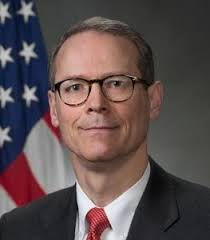2019 Inman Award Winners Announced
The University of Texas’s Intelligence Studies Project recently announced the winners of the fifth-annual “Bobby R. Inman Award” competition that recognizes exceptional student research and writing on intelligence. Links to the winning paper and the undergraduate semifinalist paper are available here and below.
Published by The Lawfare Institute
in Cooperation With

The University of Texas’s Intelligence Studies Project recently announced the winners of the fifth-annual “Bobby R. Inman Award” competition that recognizes exceptional student research and writing on intelligence. Links to the winning paper and the undergraduate semifinalist paper are available here and below.
- The recipient of the 2019 Inman Award for student scholarship is Jeff Rogg, a PhD candidate in history at the Ohio State University concentrating on conflict, peace, and diplomacy. The winning paper, Deciphering the “American Black Chamber,” chronicles the rise and fall of the Cipher Bureau and introduces a theory of “civil-intelligence”relations in the U.S.
- The graduate student semifinalist is Peter Roady, a PhD candidate in U.S. history at Columbia University. His paper, “Constructing a New Legal Framework for Intelligence: The Ford Administration, the National Security Agency, and the Year of Intelligence,” reexamines based on archival sources the internal deliberations of the Ford Administration aimed at blunting efforts to legislate a charter for U.S. intelligence, limiting the scope of the Foreign Intelligence Surveillance Act, and preserving executive primacy over intelligence activities. The text of this paper is not currently available while it is being reviewed for journal publication.
- The undergraduate semifinalist is a research team from Yale University comprising Julia Carro, Catherine Falls, Levan Margvelashvili, Mykolaj Suchy, and Gordon Xiang. Their report, Twitter Influence Campaigns, draws conclusions about Russian disinformation methodology from three recent case studies.
Over 100 high-quality papers from graduate and undergraduate students at dozens of U.S. colleges and universities were evaluated on their academic rigor, clear presentation, creativity, and the potential to contribute positively to the U.S. intelligence community.
The Intelligence Studies Project was established at the University of Texas at Austin in 2013 as a joint venture of the Robert S. Strauss Center for International Security and Law and the William P. Clements, Jr. Center for National Security. The Project’s mission is to improve understanding of intelligence activities and institutions through research, courses, and public events, bringing intelligence practitioners together with scholars, students, and the public.
The Inman Award recognizes more than six decades of distinguished public service by Bobby R. Inman, Admiral, U.S. Navy (Ret.). Admiral Inman served in multiple leadership positions in the U.S. military, intelligence community, private industry, and the University of Texas. His previous intelligence posts include Director of Naval Intelligence, Vice-Director of the Defense Intelligence Agency, Director of the National Security Agency, and Deputy Director of Central Intelligence. He continues to serve as a teacher and mentor to students, faculty members, and current government officials while occupying the Lyndon B. Johnson Centennial Chair in National Policy at the LBJ School of Public Affairs.





